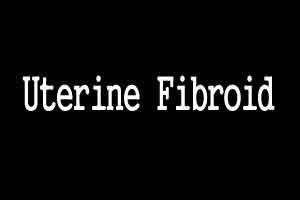- Home
- Editorial
- News
- Practice Guidelines
- Anesthesiology Guidelines
- Cancer Guidelines
- Cardiac Sciences Guidelines
- Critical Care Guidelines
- Dentistry Guidelines
- Dermatology Guidelines
- Diabetes and Endo Guidelines
- Diagnostics Guidelines
- ENT Guidelines
- Featured Practice Guidelines
- Gastroenterology Guidelines
- Geriatrics Guidelines
- Medicine Guidelines
- Nephrology Guidelines
- Neurosciences Guidelines
- Obs and Gynae Guidelines
- Ophthalmology Guidelines
- Orthopaedics Guidelines
- Paediatrics Guidelines
- Psychiatry Guidelines
- Pulmonology Guidelines
- Radiology Guidelines
- Surgery Guidelines
- Urology Guidelines
EMA recommends Ulipristal for Preop Treatment of Uterine Fibroids

Ulipristal acetate has been recommended for a grant of marketing authorization for preoperative treatment of uterine fibroids by European Medicines Agency (EMA) Committee for Medicinal Products for Human Use (CHMP).
Ulipristal Acetate Gedeon Richter will be available as 5-mg tablets. The active substance of Ulipristal Acetate Gedeon Richter is ulipristal acetate, a selective progesterone receptor modulator (ATC code: G03XB02) that acts by depriving uterine fibroids of growth stimulation due to progesterone.
- Ulipristal acetate is indicated for the pre-operative treatment of moderate to severe symptoms of uterine fibroids in adult women of reproductive age.
- Ulipristal acetate is indicated for the intermittent treatment of moderate to severe symptoms of uterine fibroids in adult women of reproductive age.
The treatment consists of one tablet of 5 mg to be taken once daily for treatment courses of up to 3 months each. Tablets may be taken with or without food. Treatments should only be initiated when menstruation has occurred:
- The first treatment course should start during the first week of menstruation.
- Re-treatment courses should start at the earliest during the first week of the second menstruation following the previous treatment course completion.
- The treating physician should explain to the patient the requirement for treatment free intervals.
According to the CHMP, "Ulipristal acetate is indicated for one treatment course of preoperative treatment of moderate to severe symptoms of uterine fibroids in adult women of reproductive age. Ulipristal acetate is indicated for the intermittent treatment of moderate to severe symptoms of uterine fibroids in adult women of reproductive age who are not eligible for surgery."
The most common side effects of dug are amenorrhea, endometrial thickening, and hot flush. Ulipristal acetate should be prescribed by physicians experienced in the diagnosis and treatment of uterine fibroids, the CHMP advised.
The application for ulipristal acetate for this indication was an informed consent application, which makes use of data from the dossier of a previously authorized reference medicine. The reference product for ulipristal acetate is Esmya. There have been concerns in the past regarding a possible liver injury associated with the drug, and therefore in February 2018, the EMA's Pharmacovigilance Risk Assessment Committee (PRAC) recommended liver function testing at least monthly for women taking Esmya for uterine fibroids.

Disclaimer: This site is primarily intended for healthcare professionals. Any content/information on this website does not replace the advice of medical and/or health professionals and should not be construed as medical/diagnostic advice/endorsement or prescription. Use of this site is subject to our terms of use, privacy policy, advertisement policy. © 2020 Minerva Medical Treatment Pvt Ltd